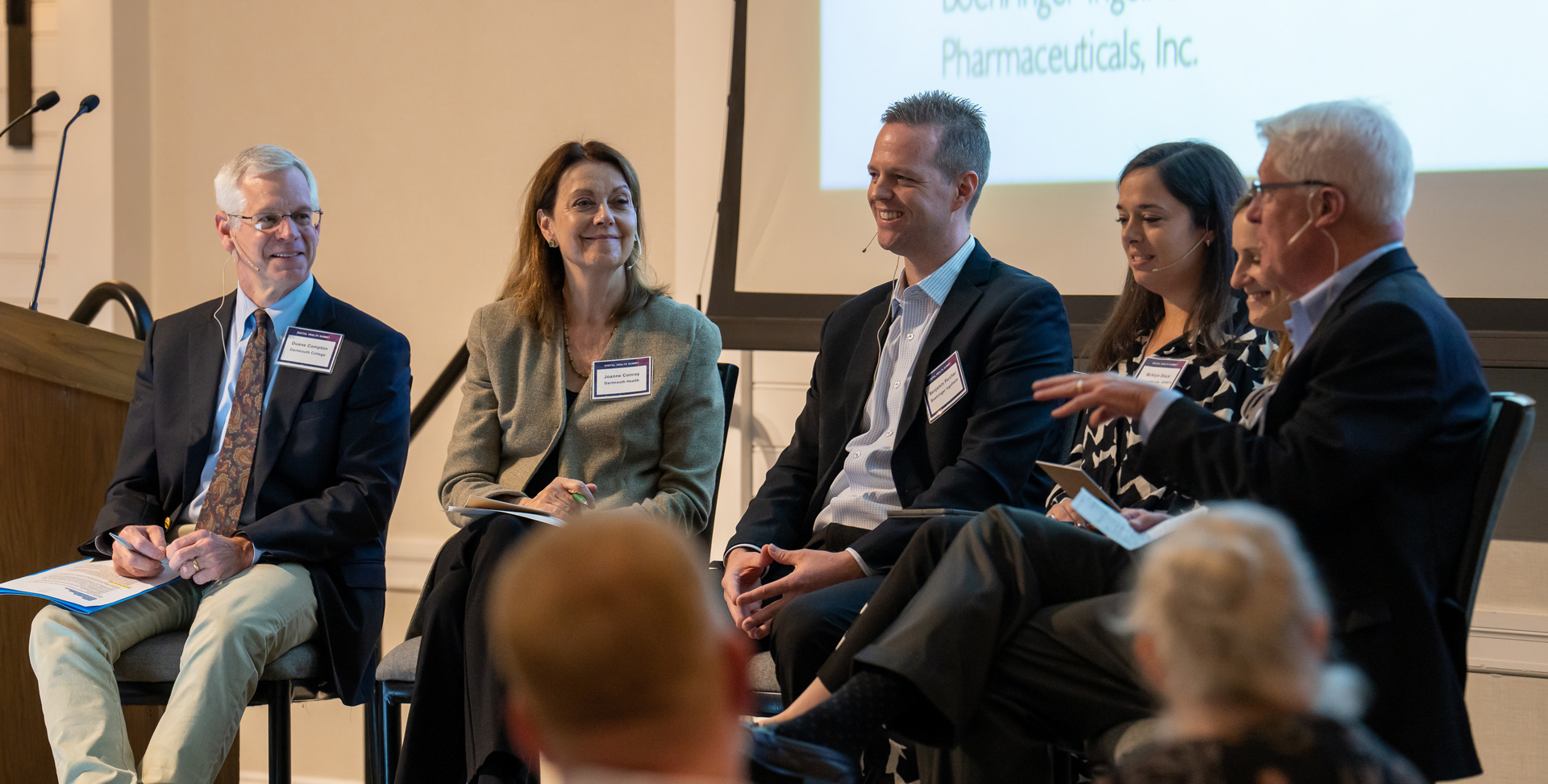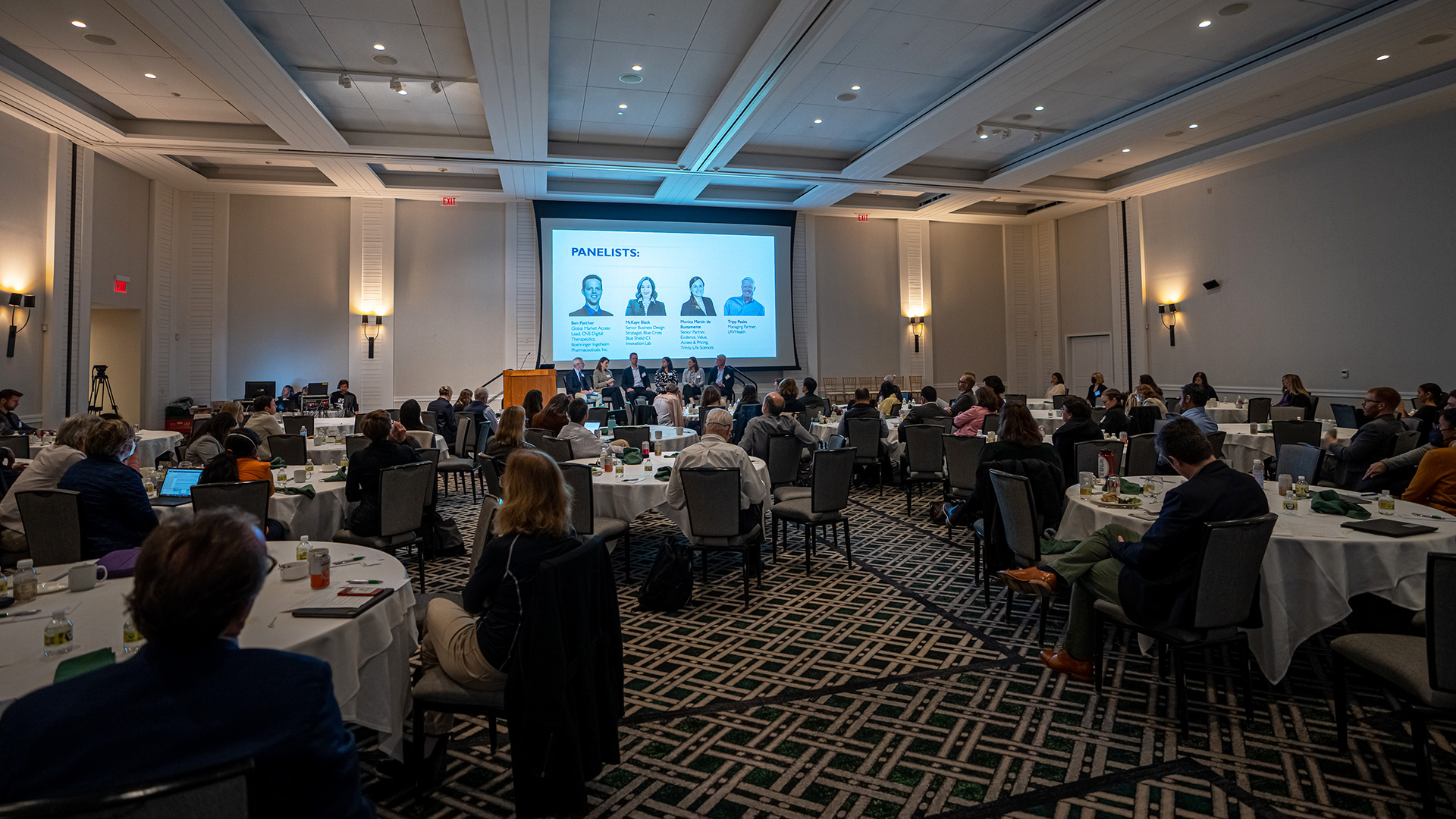
Nearly 175 people representing the digital health and pharmaceutical industries, health care systems, clinicians, scientists, investors, Dartmouth students and faculty, and government officials representing the National Institutes of Health (NIH) and the U.S. Food and Drug Administration (FDA) gathered on Dartmouth’s campus November 2 for daylong discussions centered on digital therapeutics.
Hosted by Geisel School of Medicine’s Center for Technology and Behavioral Health (CTBH) and Dartmouth’s Magnuson Center for Entrepreneurship, the program provided an overview of the science and clinical practice of digital therapeutics, the current and anticipated paths to their global deployment, and a vision for the future.
This is the first time these groups have come together in conversations hosted by an academic institution about the digital health landscape and may well be viewed as a seminal moment in the rapidly developing field.
Digital therapeutics—software used to prevent, treat, or manage medical disorders or disease—encompasses a model of care in a seamless delivery system by improving access to care, quality of care, and treatment outcomes while reducing costs for a wide array of patients in diverse settings.

According to Lisa Marsch, PhD, director of the Center for Technology and Behavioral Health, and of the Northeast Node National Drug Abuse Treatment Clinical Trials Network, and the Andrew G. Wallace Professor at Geisel, who has been working in this space for decades, these therapeutics have been transformative in treating behavioral health conditions, including the marked increases in mental health and substance use problems due to the social isolation, loss of loved ones, economic harms, stress, fatigue, and burnout associated with COVID—as well as the persistent effects of long COVID on people’s health, wellbeing, and functioning.
Surging demand for remote care has created exponential growth in the digital health industry in the past few years with global pharmaceutical companies launching clinically-validated digital therapeutics—in the U.S. alone, deployment includes prescriptions from healthcare providers to activation codes supported by a payor, employer, or pharmacy benefit manager.
Sharing their perspective on these issues, U.S. Senator for New Hampshire Senator Jeanne Shaheen briefly talked about the Access to Prescription Digital Therapeutics Act of 2022. Introduced in the U.S. Senate earlier this year, the bill provides for Medicare and Medicaid coverage of prescription digital therapeutics.
Will Aklin, PhD, director of the behavioral therapy development program at the National Institute on Drug Abuse (NIDA) provided an overview of clinically validated digital therapeutics research, including models of development and scientific evaluation.
And Danielle Fau, MSE, advisor for technology and innovation at the U.S. FDA talked about the FDA regulatory process for securing “prescription digital therapeutic” authorization and early payor feedback program.
A panel discussion co-facilitated by Geisel Dean Duane Compton, PhD, and Joanne Conroy, MD, president and CEO of Dartmouth Health, discussed a wide range of topics with panelists from Boehringer Ingelheim Pharmaceuticals, Blue Cross Blue Shield C1 Innovation Lab, Trinity Life Sciences, and LRVHealth about the future of technology-based interventions, payment models, equitable access to care, privacy, data claims analysis, technical and healthcare literacy, and the role of government regulators. A question-and-answer session followed.
Barry Schweitzer, PhD (D ’82), associate director of the Magnuson Center, announced the launch of the new Dartmouth Innovation Accelerator for Digital Health a collaboration between CTBH and the Magnuson Center.
“This new Accelerator will provide ongoing mentorship and support for moving digital health innovation at Dartmouth forward and accelerate real-world implementation in the marketplace,” Schweitzer said.
Three Dartmouth faculty affiliated with CTBH presented their research:
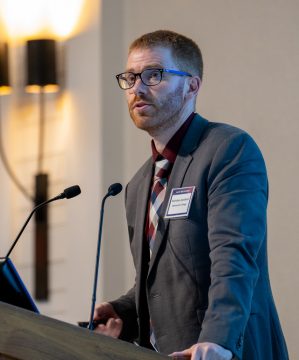
Nicholas Jacobson, PhD, an assistant professor of biomedical data science and psychiatry studies the use of personalized deep learning models to predict rapid changes in major depressive disorder symptoms and other mental health conditions using passive sensor data from smartphones and wearable devices. He talked about his work in assessing and enhancing the treatment of anxiety and depression based on passively collected data.
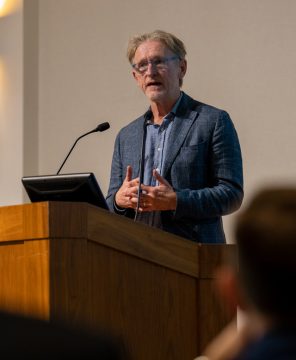
Andrew Campbell, PhD, Albert Bradley 1915 Third Century Professor in computer science is interested in mental health sensing and prediction using mobile phones. He focuses on applied machine learning and development of computational methods for smartphones and wearables with the goal of understanding human behavior in the wild. Campbell leads the Student Life project at Dartmouth that is currently following 200 students across their four years at the college using mobile behavioral sensing and brain imaging to better understand mental health during the college years. He also noted that Dartmouth is positioned to do “something big” in the field of digital therapeutics.
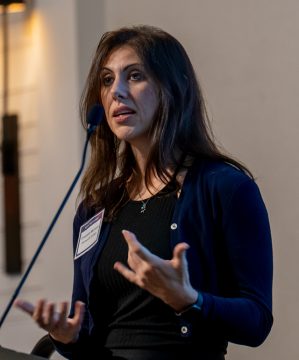
Elizabeth Murnane, PhD, Charles H. Gaut and Charles A. Norberg Assistant Professor at the Thayer School of Engineering, designs interactive health technologies that promote equitable and inclusive care that promotes biopsychosocial aspect of well-being. She presented a case study about wearable devices used for music-based interactions in pain management and for musical feedback during physical therapy. In both instances, she said, patients are musicians, and their bodies are instruments. When the devices are worn during physical therapy, music remains harmonious if the exercises are done correctly, when done incorrectly the music becomes dissonant, alerting the patient to be more mindful of form.
In closing, Marsch brought everyone up to date on the five-year partnership between the Geisel School of Medicine and Pontificia Universidad Javeriana in Colombia, where a 31-member multi-national interdisciplinary team created, implemented, and evaluated a sustainable mental health care model that leveraged science-based mobile interventions into health-care systems in that country. She said the success of that project has led to expansion of a digitally enhanced model of mental health care offered in primary care in Latin America.
